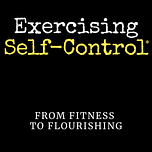Here's an interesting question for you: Do you know the moment when you've made a choice? That might seem silly, but stick with me because it does matter, and I think this is going to clarify some of the difficulties you may be having in your life.
Hey there. It's me, Kore. And you're listening to Exercising Self-Control: From Fitness to Flourishing.
Let's start this off with a story. Imagine I'm in a clothing store, and I'm there to buy a shirt. I grab three shirts, try them on in the dressing room, come out. I return two of the shirts to the attendants. I let them know, "Yep, I’ve got the one shirt. This is all I need. Thanks," and I head to the register.
Here's the question: Do you think that’s the moment I’ve decided to buy that shirt? Give it some thought, and come up with your own thinking about why you're saying ‘yes’ or ‘no.’
Most people would say, “Yes, you decided to buy the shirt. You've already done it. You're heading to the register.”
I'm going to argue that I've only potentially decided. It's not clear if I have or I haven't yet. There’s still more that we need to consider. There's a distinction: What's my behaviour in the moment? In the exact moment when I'm walking toward the register?
It’s at this point in my hypothetical story that I'm carrying a shirt toward the register. I haven't paid for it yet. That's an important distinction.
Now, something changes. As I'm walking toward the register, I notice a rack of shirts that I hadn't seen before. It catches my eye, I check it out, and I find a shirt that I actually like more. It's the same brand, same size, but it's a different pattern. So I make the switch. Seconds later, I'm at the register handing over my money in exchange for this other shirt.
I argue that now is the actual moment that I have chosen. My choice is apparent from my behaviour in that moment.
Okay, so what's going on here? My point is that we must take responsibility for the choices that we make in the moment. And to know what our choices are, we need to look at our actions. Our actions literally are the embodiment of our choices.
In the imaginary scenario with the shirt, I declared, let’s say out loud, "I'm going to buy this one." Even if I meant that and I didn't say it out loud, but I thought it, most people would say that was the moment I chose to buy the shirt that I had in hand.
As it turns out, I came out of this hypothetical store with a different shirt. If asked, "Well, why'd you buy that one instead of the other one?" I'd just say, "I changed my mind at the last minute. I found a better one." And fair enough. Technically correct, right?
But that's not useful when we want to change our behaviour deliberately. That's an important word: To be deliberate means to do something consciously, intentionally.
And here's the thing: Thinking is too fast to manage. Our thinking is fast as lightning, maybe even faster. I'm not sure - I haven't clocked it, I haven't done the research on that. But it is fast, faster than our behaviour. So we need to slow it down to the point that we can actually follow what's happening.
That's why I suggest that we define choice as the action that we take in the moment. By making our physical behaviour in the moment the embodiment of our choice, we can watch our choices unfold before our very eyes. Until our behaviour changes, it's only a potential choice.
And saying it out loud doesn't make it a choice either. As outside observers, we can only see the behaviours, the actions of other people, not their thinking. Part of that behaviour overall is, and includes, what they say out loud.
So in the hypothetical story, I might have said, "I'm going to buy this shirt." And that sounds like a choice. But people don't always keep their word. So what do we do? We wait for their actions to see what they actually choose to do.
We must do the same with ourselves: slow the speed of what I'm calling “Thinking Choice” all the way down to the speed of “Enacting Choice.” When we enact the physical actions we want for ourselves, we know without doubt we’ve made the choice. That's the moment of choice we focus our attention toward.
There's a great quote by, and I hope I pronounce his name properly, Witold Gombrowicz. He's a Polish writer, and this is what he is quoted as saying: "Do you want to know who you are? Don't ask. Act. Action will delineate and define you." Such a great quote.
That's it for today. Catch you next time.






Share this post